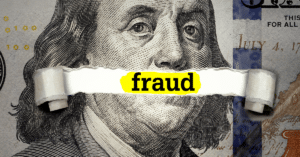Pharmaceutical fraud affects every corner of healthcare, from the clinic to the billing office. When companies use deceptive practices to push drug sales or inflate reimbursements, patients suffer and costs soar.
As a healthcare professional, you witness these practices firsthand, and your observations can make a genuine difference. This guide shows you how pharma fraud appears in daily workflows, the schemes to recognize, and the straightforward steps on how to report pharmaceutical fraud confidently.
Understanding Pharma Fraud and Its Warning Signs
Pharmaceutical fraud involves deceptive practices aimed at boosting drug sales or obtaining improper reimbursements. These schemes can occur in various areas, including sales, marketing, clinical care, pharmacy operations, billing, and data reporting. Examples include kickbacks to induce prescriptions, promoting off label use or illegal speaker programs.
Signs of Potential Pharma Fraud
- Unusual Documentation. Vague details, copied patient notes, or off-label claims without proper justification.
- Prescribing Pressures. Colleagues pushing brand-name drugs over effective alternatives or encouraging unnecessary program enrollments.
- Suspicious Events. “Educational” events that feel more like sales presentations, prioritizing product promotion over genuine learning.
- Questionable Pharmacy Practices. Automatic refills not requested by patients, copay waivers disguising high drug prices, or sponsored testing steering prescriptions toward specific medications.
- Unusual Relationships. Close, financially motivated ties between labs, drug reps, and prescribers that raise red flags.
Staying vigilant for these signs can help uncover and prevent pharmaceutical fraud in its many forms.
Common Pharma Fraud Schemes in Healthcare
- Kickbacks and Improper Incentives occur when companies offer financial rewards for prescribing specific drugs or placing medical devices. These arrangements disguise themselves as consulting fees, speaker payments, or research grants, but they ultimately influence medical decisions based on profit rather than patient benefit.
- Off-label Promotion and Misbranding happens when companies market drugs for uses the FDA hasn’t approved. While doctors can legally prescribe medications off-label, companies cannot promote these uses without proper authorization. This practice misleads providers about safety and effectiveness.
- Copay Assistance Programs may appear helpful on the surface, but they often mask schemes that hide the true cost of expensive medications. Companies may waive patient copays while charging insurance programs inflated prices, creating an illusion of affordability while driving up system-wide costs.
- Data Misuse and Speaker Programs involve companies using patient information inappropriately or paying for repetitive speaking engagements that serve as disguised marketing rather than legitimate education.
How to Report Pharma Fraud
Taking action to report pharmaceutical fraud starts with careful documentation. Collect clear notes, including dates, names, products involved, and specific conversations or events you witnessed. Detail who said what, when interactions occurred, and any unusual patterns you observe. This information becomes the foundation of your case.
Organize your evidence systematically and store it securely. Keep copies of relevant documents, emails, or communications that support your observations. Maintain a timeline of events to help establish patterns and demonstrate how schemes developed over time.
Consult with an experienced whistleblower attorney who understands pharmaceutical fraud cases. These professionals guide you through the process, protect your interests, and help determine the strongest approach for your situation.
Submit your report through proper legal channels with professional support. The False Claims Act protects whistleblowers and provides financial rewards for successful cases. You could receive up to 30% of any funds the government recovers, creating both moral and monetary incentives for doing what’s right.
Make a Difference by Reporting Pharma Fraud
Pharmaceutical fraud encompasses deceptive practices that prioritize profits over patients. By recognizing warning signs like unusual documentation, prescribing pressure, disguised marketing, and suspicious relationships, you can identify schemes that harm healthcare integrity. The reporting process involves documenting evidence, organizing your observations, consulting legal experts, and filing through established channels.
When you report pharma fraud, you protect patients, support honest providers, and strengthen healthcare systems for everyone. The process is manageable with proper guidance, and successful cases provide meaningful financial rewards, alongside the satisfaction of making healthcare more trustworthy.
Ready to make a difference? Contact DJO Whistleblower Law Group for a free, confidential consultation on how to report pharmaceutical fraud. As a contingency law firm, you won’t pay anything unless your case succeeds. We’ll work diligently to secure the maximum reward, up to 30% of any funds the government recovers through your courage to speak up.


